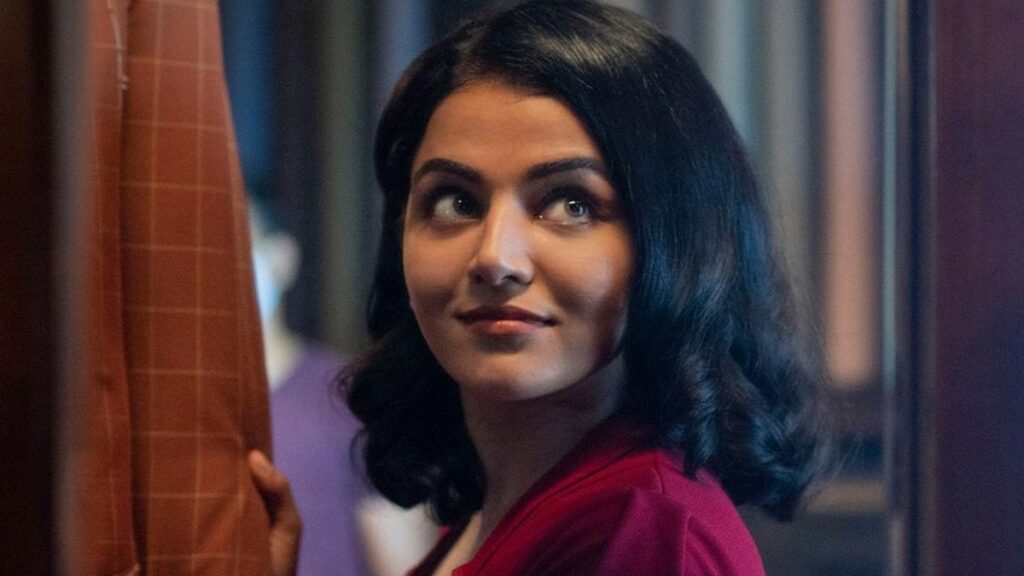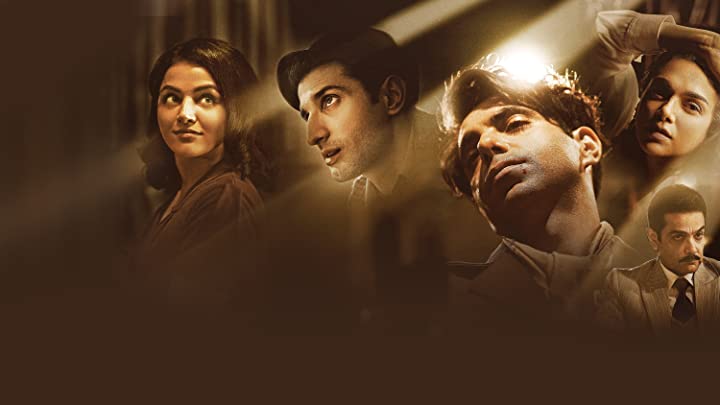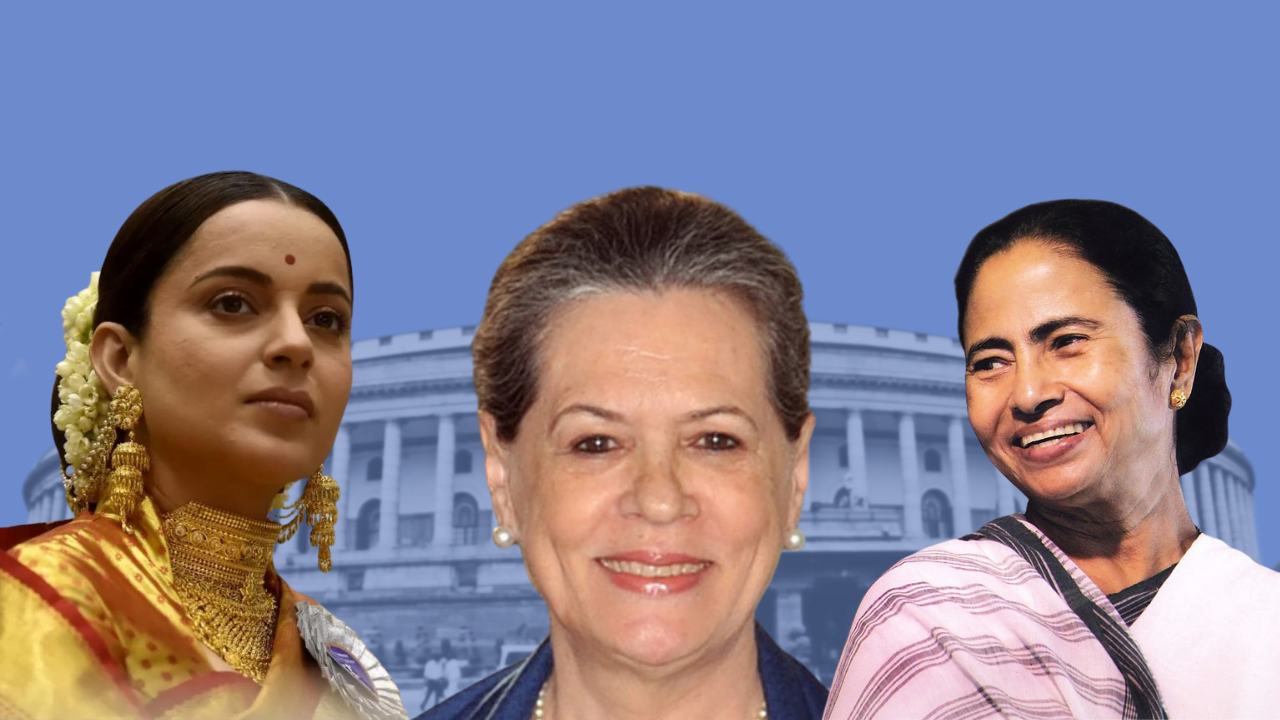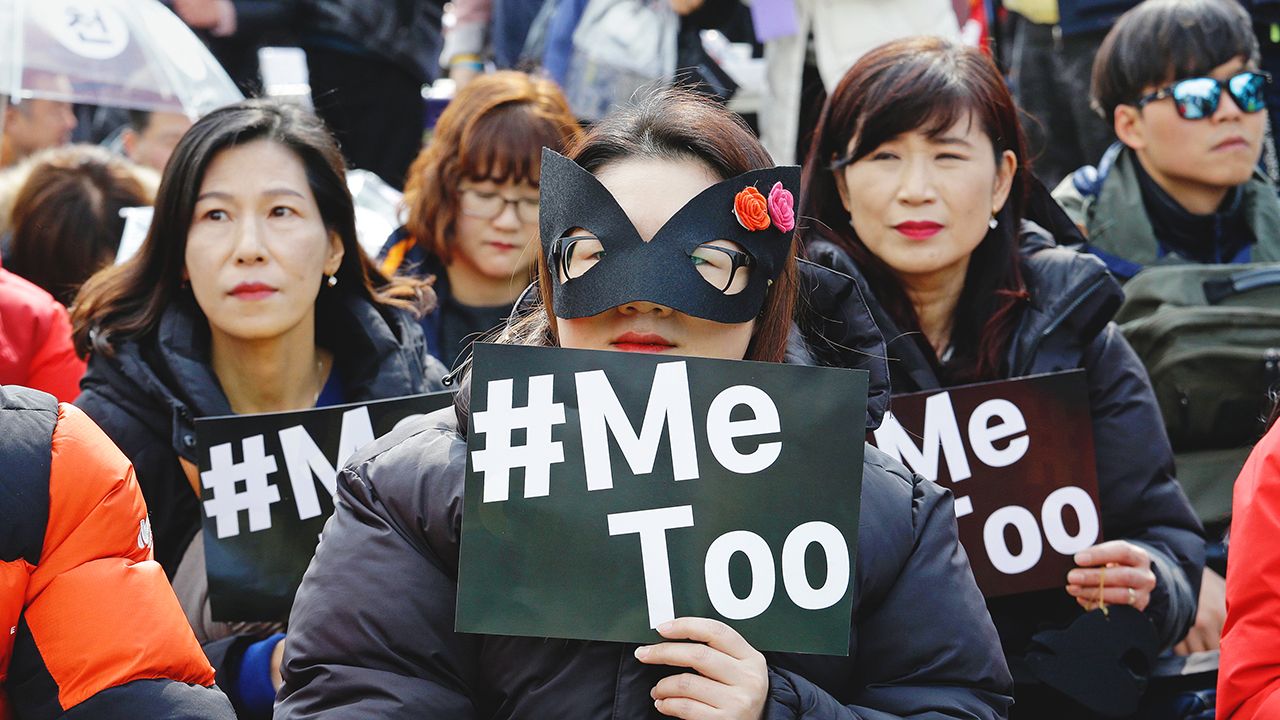The ‘golden era‘ of Indian cinema is revisited like never before in Vikramaditya Motwane’s ‘Jubilee‘, streaming on Amazon Prime. The story revolves around storytelling – in divided homelands, refugee camps and on screen.
The pangs of separation are undeniable – from the news of ‘batwara‘ (partition of the Indian Subcontinent) in the opening scenes to characters meeting their ‘un-heroic‘ fate, enhanced by the ultimate song, “sāre ke sāre akele” (meaning, each one alone). Released at a time when history is tampered with, ‘Jubilee‘ manages to weave smart, subtle, and beautifully-crafted political commentary into the plot.
Set in the 1940s-50s India, ‘Jubilee‘ tells a passionate love story in trying times, where the characters claim and reclaim their agency as lovers and as artists. The characters are layered, flawed and in search of a certain kind of cinematic heroism that might never be achieved – attributes that make them some of the finest written characters across Indian over-the-top platforms.
The female protagonists make the ‘Jubilee‘ stand out, adding newer dimensions to the depiction of love and loss in post-partition India. As Sumitra seeks justice for Jamshed (killed in a riot), Niloufer sits next to the telephone, waiting for Jay’s call. The unavoidable grip of death, destruction and decay is as much political as it is personal.
The love story(/ies) in ‘Jubilee‘, are at the same time, stories of aspiration, where artists grapple with the changed political realities in partition-stricken India. The partition of the subcontinent did have an adverse effect on the Indian film industry, as filmmaker Karan Balli notes, “The wounds caused by Partition have been difficult to heal, especially in the cinematic world of the two countries. As compared to other arts especially literature, filmmakers have only sporadically explored Partition on either side of the border.”
As Sumitra seeks justice for Jamshed (killed in a riot), Niloufer sits next to the telephone, waiting for Jay’s call. The unavoidable grip of death, destruction and decay is as much political as it is personal.
It is important to note, the decision to shift cities in the 1940s South Asia was often inspired by the availability of opportunity in the entertainment industry. The thriving film industry in Bombay emerged as a popular choice among artists aspiring to work in Indian cinemas. Travelling between cities in search of specific careers in the entertainment industry was not uncommon.

‘Jubilee’ remembers the fluid travel networks of pre-partition days, as Jamshed Khan (an actor from Lucknow), decides to pursue his passion for theatre and accepts Jay Khanna’s offer to work in the Khanna Theatre company in Karachi. Jamshed’s rejection of Bombay in the first episode is unaffected by the budding religiopolitical tension in the region; it is rather an acceptance of his friend Jay’s offer to work in the theatres. Jamshed’s decision to leave for Karachi is telling of the choices he has made, both in terms of his art and his love.
Sumitra must navigate between her role as Jamshed’s lover and as one of the leading actors in the Bombay film industry. She exercises her agency as a lover, making the character an active agent in the relationship. The episode emerges as an instance where personal choices affect the lives of characters in a geo-political landscape waiting to be irreversibly changed.
Niloufer, a performer at a Tawaif-Khana in Lucknow, is seen to engage in a certain kind of professionalism where she accepts remuneration for both her art and her sexual labour while retaining the agency to select her partners and lovers. The collective memory of the art of Tawaif is rekindled, one where sexual autonomy is non-negotiable.
Characters in ‘Jubilee‘, affected by the Partition in different capacities, must play a heroic gamble with fate (almost like a tryst with destiny). They have nothing but their art to sell, as re-affirmed by Jay (played by Siddhant Gupta), a “campee” (refugee): “mujhe sirf drama karna aata hai,” (meaning, I only know how to perform in a drama).
The series posits the power of performance against moments of powerlessness. Niloufer, a performer at a Tawaif-Khana in Lucknow, is seen to engage in a certain kind of professionalism where she accepts remuneration for both her art and her sexual labour while retaining the agency to select her partners and lovers. The collective memory of the art of Tawaif is rekindled, one where sexual autonomy is non-negotiable.

“The tawaif was a highly sophisticated courtesan of the Indian subcontinent, proficient in music and dance… They enjoyed a relatively autonomous lifestyle with a respected place in society. They owned property, controlled their own wealth, and lived flamboyant and luxurious lives,” Konkona Ray notes in an article titled The Art of Tawaif: A Tradition Lost to Colonial Moralities.
Historian Veena Talwar Oldenburg warns in her book The Making of Colonial Lucknow, “to relate tawaifs to prostitution is an extremely corrupt portrayal of the institution.” The OTT series ‘Jubilee‘ has tapped into the diversity of the identities associated with the art form by portraying Niloufer’s character – layered, complex and resilient.
Niloufer’s skilful performance under the shining chandeliers as an enchanted Jay’s gaze follows her brings back memories of the myriad attempts at recreating the tawaif art practices in Indian cinemas. Niloufer and Jay’s love for each other are skilfully crafted to be somewhat ‘ill-timed.‘
In the first encounter, Niloufer’s rejection of Jay’s romantic advances on failure to remunerate her is telling of her professional take as a tawaif practitioner. Another instance marks the difference between tawaif performance culture and sexual exploitation in the series. Arriving in Pakistan, Niloufer, though hesitantly, agrees to perform at a hotel (she too, like Jay, has nothing but her art to sell).

However, on finding herself in a “kotha” and robbed of sexual agency, she escapes. The stress on “kamaai” (hard–earned money) highlights Niloufer’s character in the series as a working woman. Her return to India happens to be on the eve of 15th August, as she walks with joy on the streets of Bombay under a sparkling sky dotted by fireworks. Her tryst with destiny is about to begin.
The character of Niloufer (played by Wamiqa Gabbi), showcases aspiration unapologetically as she makes her way in the Bombay film industry. The character is conscious of her roles as an artist and later as a lover, in a rather unconventional and non-compromising manner. Niloufer aspires to a glamorous life in the film industry and is not ashamed to admit the same.
The character disappoints her admirer’s (Jay) expectations in a symbolic scene where Niloufer keeps Jay waiting by the telephone and pursues her new romantic and professional interests. Having acknowledged her love for Jay, the lover in Niloufer is unafraid to make a choice – a moment where the telephone imagery recurs, with Niloufer waiting on the other end of unanswered calls.

Niloufer’s character proclaims her love for both Jay and Jamshed, by asking Jay to be a “hero” as he testifies to incidents culminating in Jamshed’s death. Even after the lovers in the series meet their un-heroic fate, Niloufer is seen to be travelling on a train as she recalls the graceful actor and ardent lover Sumitra Kumari. Is this an indication that Niloufer’s ‘role’ is far from over – both as an artist and as a lover?
Also Read: ‘Hush Hush’ Review: Amazon Prime Series Explores How Power And Patriarchy Become Villains
On the other hand, Sumitra Kumari’s character (played by Aditi Rao Hyderi) is seen to tackle challenges as a woman artist in the film industry. Despite being at the peak of her career (as declared in the opening scene), the most popular “star” in the film industry must step back for the emerging male “hero” – an arrangement that Sumitra fights against for reasons that are both personal and professional.

References to Jamshed Khan being lynched by the ‘bheed‘ (crowd), haunts the plot and emerges as a subtle yet powerful political statement. While the aspiring “heroes” (male leads) are complicit or forced to compromise with the truth behind the death, both Sumitra and Niloufer’s characters put up a heroic fight for the sake of love.
References to Jamshed Khan being lynched by the ‘bheed’ (crowd), haunts the plot and emerges as a subtle yet powerful political statement.
In Sumitra, the audience would find a celebration of sexuality and femininity tinted with loss. Her quest for love informs her choices as an artist. She uses the resources available to her, a leading artist in the film industry, to seek justice for her dead lover. Sumitra’s character contradicts the popular idea of passivity in the portrayal of women as lovers.

Characters in the series are in a constant dialogue with the social and political aspects of the times (and at a deeper look, of our times as well). The series has explored the role of women as active agents, in control of their personal and professional lives. In an industry dominated by the over-arching image of a male lover, the women in the series are seen fighting battles for love through their art.
Also Read: Netflix’s Class Is All About Sex, Money And Privilege
‘Jubilee‘, brought to life by Vikramaditya Motwane, Soumik Sen and Atul Sabharwal, has told an enchanting tale – one that invites conversations on women’s art, sexuality, and resilience in Indian cinema in the days to come.




